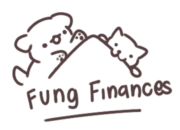Real Estate
Condominium 101 - The Ins and Outs of Status Certificate
If you’re in the market to buy a condo in Ontario, you’ll no doubt hear about reviewing the Status Certificate. Likely, your real estate agent will recommend that your offer to purchase the condo unit be conditional upon having your lawyer review the Status Certificate. If you aren’t familiar with it, we’re here to give you a quick run-through of it. Here in this article, we talk about the ins and outs of Status Certificate.

What is Condominium Status Certificate?
A status certificate is a document that usually about a few hundred pages long and contains important financial and legal matters that every condo owner must know. This applies to both condominium apartments and townhouses. In general, the status certificate covers matters specific to the condo unit you are purchasing and matters specific to the condo corporation as a whole.
Why Do I Need A Status Certificate?
When you make an offer to buy a condo, your offer will likely be conditional upon the review of the status certificate by your lawyer. This condition is to protect you from things other than material facts related to the property, such as the condominium rules, regulations, rights and obligations. Within the status certificate, it also highlights the financial health and legal information of the condominium. Generally, it’s good to give your lawyer a 2-5 business days period to review all of the documents to make sure that you aren’t buying into a legally or financially risky condo building. Sometimes, your bank or lender may also require a copy of an up-to-date status certificate in order to underwrite your mortgage.
Who Pays For the Condo Status Certificate?
In general, the seller provides the status certificate and usually pays for it (usually $100 in Toronto). However, this can be negotiable and could be covered by the Buyer or the Seller. Once ordered, the condo corporation/property manager will have 10 business days to provide it to you.
Key Things To look Out For In A Status Certificate!
Even if you don’t want to read anything about the status certificate, make sure to read the following sections! Aside from how aesthetically pleasing the condo unit looks like, these key things can make or break the deal for many potential owners.
1. Bylaws, Rules And Regulations
This is probably #1 on everyone’s list to know because it will impact your day-to-day enjoyment of the condo. The bylaws, rules and regulations will generally cover the following topics:
- Pet restrictions,
- Visitor rules and visitor parking,
- Rules surrounding renting out your unit, such as duration and permission,
- Use of the common elements,
- Condo unit alterations or renovations rules,
- Condo unit decoration rules – often there are rules restricting the kind or colour of window coverings, what you can store on your balcony, etc.
- Noise and smells,
- Parking and locker rules, such as renting a locker to someone who lives in the building,
- Bike rules,
- Balconies and terraces, such as no barbeques allowed on balconies.
- Obligations, such repairs.
2. Parking Spot and Locker Ownership – Owned, Exclusive and Assigned
The status certificate will also cover parking spots and lockers ownership. They can either be owned, exclusive or assigned. In all 3 forms of ownership, you can use them. The differences lie between transfer of ownership. If the previous owner owned the parking spot or locker, they can sell them separately or together with the condo unit. If it is exclusive, they can pass on the rights on to the next buyer. If it is assigned, there is no transfer of ownership.
3. Condo Maintenance fees
Condo maintenance fees (also known as common element expenses) are a very important part of the status certificate. Within the status certificate, it will cover your monthly condo maintenance fees for the year as well as what is covered. This may include heat, water, hydro, central ac, building insurance, common elements maintenance, parking maintenance and contribution to the reserve fund. Your lawyer will confirm that the condo fees that you agreed to in the Agreement of Purchase sale, and what they cover, are correct. They’ll also review if there are any planned increases to the condo maintenance fees. Condo maintenance fees are tied to several factors:
- Percentage ownership of each individual unit. For example: if there were 100 identically-sized units in a condo, each would own 1% of the condo corporation and pay 2% of the condo maintenance fees. Of course, most condo buildings have units of varying sizes. Thus, the bigger the condo, the larger the condo maintenance fee is.
- Reserve funds. Part of every monthly condo maintenance fee (usually 20-30%) is paid into the reserve fund each month and it serves as an emergency fund for the condo corporation to make non-routine repairs and improvements. Having an adequate amount of money in the reserve fund is essential to having a financially healthy condo corporation.
If the condo fees seem too good to be true, they probably are and have some caveats to them. Newly-built condos start out with low condo maintenance fees but expect that to substantially increase in the first 2 years to reflect the actual maintenance fees. Self-managed condo buildings may have low condo maintenance fees but also have low reserve funds. Instead, they rely on special assessments whenever condo owners need to pay for big-ticket items and emergencies (ex. repairs to roof, elevators, heating systems, etc.).
4. Special Assessments
The status certificate will outline any current special assessments. A special assessment is a levy (required financial contribution) on condo owners when extra funds are required to pay for repairs, budget shortfalls or increase to reserve fund. Special assessments can be one-time costs (ex. $10,000 per unit) or can be spread over a number of years (ex. an extra $300 a month for the next 3 years).
5. Lawsuits
The Status Certificate will contain any pending and resolved lawsuits (both against and by the corporation). Depending on the results, condo owners may be liable. For example, the condo corporation has filed a lawsuit against a plumbing company for a serious issue with a leaky pipe. If the plumbing company isn’t found liable, condo owners will personally have to resolve the issue using the reserve funds and result in an increase to the condo maintenance fees. As such, your lawyer will help you assess what is and is not a concern, by looking at any pending lawsuits, the parties involved, and the potential liability.
What Else Is In The Condo Status Certificate?
Within the Status Certificate, there’s a ton of information in the package. We’ve broken them down into 4 categories. Some of the things may have been covered in the section above, but it doesn’t hurt to stress how important it is to know about them.
1. Basic Information
- Legal registration of the corporation, address and any easements.
- Contact information for the Board of Directors and Property Managers.
- Whether the unit is current or in arrears in paying the monthly condo maintenance fees .
- Whether or not there is any special assessment on the unit or building.
- Boundaries of the units – condo owners own the drywall and everything inside it.
- Duties and rights of the condo corporation and of the individual owners.
- Percentage ownership of each individual unit and the amount that unit contributes to the common elements.
- Percentage of units that were reported as tenanted in the previous calendar year. Buildings that have a high owner-resident ratio tend to have fewer issues and be better maintained.
2. Financial and Insurance Information
- Copy of the current budget.
- Details of any increases in common elements or special assessments in the current year.
- Audited financial statements for the previous year.
- Certificate of insurance for the building.
- Any requirements on the individual owners to get unit or liability insurance.
- List of all agreements the building is party to (ex. rental agreements).
- Reserve Fund balance.
- A summary of the Reserve Fund Study. A Reserve Fund study is mandated by law for all condos in Ontario and usually occur every 3 years. The purpose of the study is to have a professional examine all the main systems (eg heating, electrical, plumbing) and physical structures (garage, balconies, windows, common elements) and provide a reasonable expectation as to when they will need to be replaced or repaired and an estimated cost.
3. Legal Information
- Details of any judgments against the corporation as well as any lawsuits they’ve lost and still owe money.
- Details of any pending lawsuits (both against and by the corporation) – for example, the corporation might be getting sued by an owner for a slip and fall accident, or the corporation might be suing the original builder for deficiencies in the building.
4. Bylaws, Rules and Regulations
- Pet restrictions,
- Visitor rules and visitor parking,
- Rules surrounding renting out your unit, such as duration and permission,
- Use of the common elements,
- Condo unit alterations or renovations rules,
- Condo unit decoration rules – often there are rules restricting the kind or colour of window coverings, what you can store on your balcony, etc.
- Noise and smells,
- Parking and locker rules, such as renting a locker to someone who lives in the building,
- Bike rules,
- Balconies and terraces, such as no barbeques allowed on balconies.
- Obligations, such repairs.
What Should I Do Next?
While your real estate agent can help you understand some parts of the status certificate, getting an opinion from a qualified real estate lawyer is essential. As such, we advise you to speak with a real estate lawyer or get in touch with us so we can refer you to an expert.
Need More Help on Condominium Status Certificate?
Here's How You Can Get In Touch With Us
We Are Available 24/7
Feel free to ask us anything.
We are fluent in 廣東話 Cantonese and English
Social Media
Interested In Learning More?
Real Estate Chattels and Fixtures – What’s Included and What’s Not Sometimes, life throws you a curve ball. Imagine yourself finally getting …
Real Estate Home Improvements – Inexpensive Projects You Can Try For Big Returns It’s always a good idea to spruce up the …
Real Estate Property Easements – Enjoying Your Property To Its Fullest When it comes to real estate, what you don’t know CAN …

Our Promise To You
Fung Finances is a free service. We are not an accountant, financial advisor, law firm, “lawyer referral service,” or a substitute for an accountant, financial advisor, attorney, or law firm. Always do your own due diligence and never blindly listen to a random article on the internet. We do our best to provide financial education with our free videos, articles, tools, and other self-help content. But these are for informational purposes only, they’re not investment advice.
Fung Finances does not and cannot guarantee the accuracy or applicability of any information regarding your individual circumstances. The examples we provide are hypothetical and we encourage you to get advice from a qualified professional regarding specific investment, tax, legal, and financial issues. Previous market performance does not guarantee future performance.
We want everyone to be able to make educated financial decisions. We do not feature every company or financial product available. However, we’re proud of the financial education and guidance that we provide at no charge.
We’re paid by our brand partners and advertisers. This may influence which products we mention, review, and where they appear on our site. But it does not affect our recommendations or advice.



